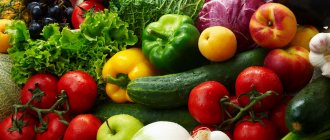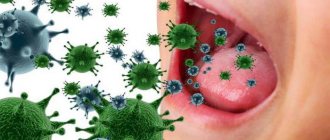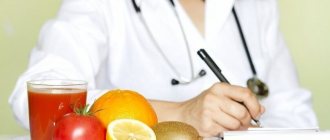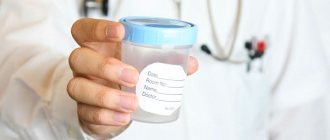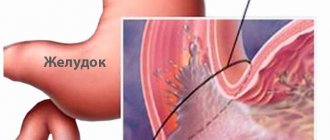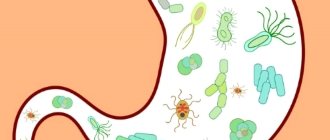Bacteria are everywhere and it is difficult to avoid them. But did you know that cramps, abdominal pain, and other digestive problems can be caused by an insidious bacterium - Helicobacter pylori (H. pylori)? Is it possible to protect yourself from it? What is the best prevention? What is the treatment and diet for Helicobacter pylori?
Helicobacter pylori: features of the disease
Interest in Helicobacter pylori continues to grow. The relationship of bacteria to chronic gastric problems and inflammation of the stomach emphasizes the importance and relevance of this topic. A number of articles in newspapers, magazines, and the Internet are devoted to her. Public awareness is growing and a significant portion of the population has already encountered this problem.
Gastric upsets caused by Helicobacter pylori are unpleasant, chronic, recurring health problems. They worry many people and affect the young, productive generation. The incidence of Helicobacter pylori is steadily increasing. The bacterium affects 30–50% of the population. Europe, China, and South America report high incidence. In our country, the incidence is relatively high, although experts talk about its gradual decline. This is due to better diagnosis and more effective treatment.
Helicobacter pylori is a spiral-shaped bacterium that colonizes the stomach. Not every bacterial colonization causes clinical problems. The infection does not have typical symptoms; most patients report no or only sporadic stomach problems. Scientists have isolated several different strains of the bacterium with varying virulence.
How is Helicobacter pylori transmitted?
Helicobacter transmission is simple. You can become infected through contaminated food, water, objects (e.g. cutlery, plates, etc.).
There is a high probability of infection through saliva and other body fluids of a sick person. Animals infected with the bacteria can also become sources of infection, especially if hand hygiene is poor.
Helicobacter pylori infection belongs to a group of diseases that occur mainly in people who neglect hygiene.
Only a person with insufficient resistance to it can become infected with the bacterium, which is the responsibility of the body’s immune system.
According to recent scientific research, transmission of Helicobacter pylori through kissing is unlikely. But cases of transmission of the bacterium during gastroscopy have been reported.
Many people become infected with H. pylori as children, but symptoms do not develop until adulthood.
The mechanism that leads to the appearance of signs of infection in some people and their absence in others is not yet clear.
Analysis for Helicobacter pylori
If you have persistent abdominal pain or other symptoms of an intestinal infection, consult your doctor. He will prescribe a gastroscopy. Gastroscopic examination is carried out by inserting a tube with a probe into the stomach through the oral cavity. With its help, a sample of the mucous membrane is taken, then sent to the laboratory to determine the presence of bacteria in the stomach.
A stool sample is often used to diagnose the disease. This examination method is simpler. The appropriateness of the 1st or 2nd procedure is determined by the doctor. He may also decide to conduct both examination methods.
https://youtu.be/2P6W7AkzU_I
Examples of dishes
If you are treating a disease, then from meat products you can prepare stewed chicken breast, boiled beef, steam cutlet, stewed meatball, boiled turkey, beef soufflé. Dairy products are served in the form of low-fat warm milk, low-fat cottage cheese, yogurt, and kefir.
The dish can be either milk or cooked in water
You can boil eggs or make omelettes in a bag. To do this, beat a couple of eggs with added milk (2 tbsp). Butter is added to the mixture. The bag is tied and placed in boiling water. Cook, covered with a lid, for 2-3 minutes. This makes an excellent low-fat egg soufflé. You can add butter a little at a time. The diet should consist of a large amount of vegetables and fruits.
The best vegetables to prepare are mashed potatoes, grated vinaigrette, boiled beets, and pumpkin puree. During the treatment of the disease, cereals can be cooked in both water and milk. This is just a sample menu and recipes that can be used for Helicobacter pylori infection. The attending physician who supervises the treatment will supplement and diversify the menu. Find out which antibiotics to treat best from your doctor. If you experience any stomach pain, you should seek professional advice.
How to treat Helicobacter pylori with medication?
Ulcers caused by Helicobacter pylori, like the presence of the bacterium itself, require treatment. Today, a therapeutic plan consisting of a triple combination of drugs (2 antibiotics + 1 proton pump inhibitor) is used.
After 1–2 weeks, symptoms relieve and the patient’s condition improves.
The most common medications for treating Helicobacter pylori are described below.
Antibiotics
These drugs are necessary in the treatment of bacterial infection. Antibiotics that have the ability to kill H. pylori include:
- Clarithromycin;
- Metronidazole;
- Tetracyclines.
Antibiotic treatment may cause diarrhea and abdominal pain. To avoid these side effects, choose the right probiotics. They will help maintain the state of the microflora and avoid complications. Take probiotics 2 hours after taking an antibiotic (2 hours before or 2 hours after taking the drug). Probiotic cultures are also found in yogurt and acidophilus milk. These products are included in the diet menu for Helicobacter pylori.
Never interrupt antibiotic treatment; complete the entire therapeutic course, otherwise the treatment will not work.
Proton pump blockers
These drugs block small pumps in the stomach that produce hydrochloric acid, which has an acidic pH. By reducing acid production in the stomach, protective factors prevail and ulceration is reduced.
Proton pump blockers include drugs such as:
- Lansoprazole;
- Omeprazole;
- Pantoprazole.
Histamine receptor blockers
Histamine is a factor that increases the production of stomach acid. Therefore, blocking it also reduces the production of hydrochloric acid.
Histamine receptor blockers include:
- Cimetidine;
- Famotidine;
- Ranitidine.
Why does the disease occur?
Constant snacking on the go, as well as dry food and eating fast food are the causes of diseases that affect the digestive organs.
Along with this rather serious factor that provokes stomach problems is Helicobacter pylori. Against the background of its negative influence, patients develop the so-called helicobacteriosis. The initial and advanced stages of gastritis associated with this bacterium are characterized by symptoms of inflammation of the gastric mucosa, occurring with increased or (less often) normal acidity, namely:
- heartburn, sour belching;
- normal or increased appetite;
- pain in the epigastrium (under the stomach), appearing one and a half to two hours after eating;
- tendency to constipation.
The last stage of Helicobacter pylori gastritis is characterized by signs of atrophy of the gastric mucosa, such as:
- poor appetite;
- feeling of heaviness in the epigastrium after eating (indigestion);
- dull pain in the stomach (under the stomach and in the left hypochondrium);
- tendency to diarrhea, which is associated with a decrease in the barrier function of hydrochloric acid;
- dryness and metallic taste in the mouth;
- belching of air, eaten food, often rotten;
- nausea;
- weight loss;
- the appearance of cracks in the corners of the mouth (“jams”).
Diet and nutrition in the treatment of Helicobacter pylori in the stomach
The use of antibiotics should not be exaggerated, as this may irritate the stomach, hence leading to further complications. There is a more gentle way - a diet for Helicobacter pylori.
It involves the exclusion of fried, fatty foods. Stewed white meat, fish, and vegetables are recommended. Legumes that cause flatulence should also be avoided. Alcoholic drinks are not allowed.
Include garlic and broccoli in your diet for Chyloribacter pylori.
For effective treatment, it is advisable to avoid stress and provide the body with enough sleep.
If complications occur or symptoms worsen, consult a doctor. Left untreated, the disease can in some cases lead to stomach cancer.
What foods should you avoid?
Dietary nutrition involves excluding the following foods from the diet:
- meat and fish of fatty varieties;
- mushrooms;
- animal fat;
- sausage (in particular smoked);
- black bread;
- ice cream and baked goods;
- canned food;
- salty and spicy dishes;
- carbonated and alcoholic drinks;
- asparagus, radishes and all legumes;
- processed and smoked cheese;
- cherry, peach and grapes.
Diet for Helicobacter pylori: allowed and prohibited foods
The first, important step in adapting nutrition to the diet for Helicobacter pylori is awareness of the principles of healthy eating. Despite the fact that taste cells often encourage the consumption of unhealthy foods that are burdensome for the body, the role of nutrition should be exactly the opposite - the diet for chylactobacter is designed to save the body and benefit it.
What are the principles of a healthy diet when infected with the gastric bacterium Helicobacter pylori (they are also recommended for healthy people):
- Consume food calmly - this is a simple step that is important for the body. Emotions accompanying food intake affect overall digestion.
- It is recommended to eat little by little more often. Eating large portions unnecessarily burdens the body, depriving it of energy spent on prolonged digestion of food. When the stomach is colonized by the bacterium Helicobacter pylori, the diet is based on 5 meals a day so that the body constantly gradually digests food without being burdened.
- Foods that cause stomach problems - hot, spicy, fatty foods - are excluded from the diet. It is advisable to stop smoking and drinking strong coffee.
- Don't create a weakened environment. The bacterium Helicobacter pylori can live in the stomach without causing problems for years. The problem occurs when it multiplies in a weakened stomach that does not produce enough gastric juice and is too busy digesting heavy food. This creates good conditions for the growth of the pathogen and facilitates damage to the gastric mucosa. When supporting digestion with quality enzymes (eg apple cider vinegar), the stomach environment will not be suitable for the growth of H. pylori.
What to include in your diet?
If you develop a Helicobacter Pylori infection, it is important to be careful when choosing foods. It is recommended to use boiling, steaming, and stewing as a cooking method. Products included in the diet for Helicobacter pylori:
- white meat;
- broccoli;
- fish;
- vegetable oil;
- oat, wheat flakes;
- dark bread;
- mineral waters with high sodium content;
- foods high in fiber and vitamin C.
Organic, unfiltered apple cider vinegar, preferably with a little sediment at the bottom of the bottle, is a suitable natural remedy for improving digestion and stomach acid production. Its consumption requires caution in the later stages of gastric ulceration - it is recommended to wait until the inflammation of the mucous membrane subsides with the use of vinegar. At this time, it is better not to unnecessarily stimulate the formation of juice and not burden the stomach. Although its correct formation is important in the treatment of Helicobacter pylori infection, it can contribute to damage to the mucosa, weakened by inflammation, and ulceration.
Probiotics, substances with antibacterial and anti-inflammatory properties, will help support digestion.
What to give up?
In addition to following the principles of a healthy diet, a diet for Helicobacter pylori involves the complete exclusion of a number of foods from the diet.
It is recommended to limit foods that irritate the gastrointestinal tract and cause flatulence. It includes:
- sweet carbonated drinks;
- drinks with a high content of carbon dioxide, caffeine;
- hot sauces;
- raw vegetables (tomatoes, onions, garlic, peppers, cucumbers);
- fatty, smoked meat;
- salted nuts;
- White bread;
- fruits that are too sweet.
It is not recommended to use a lot of fats or frying when cooking. It is advisable to limit salting and avoid eating too hot or cold food.
What can you eat?
Diet for Helicobacter pylori is of great importance. The patient should be informed by his doctor about what to consume if infected. In addition, a person himself may notice that when he eats something forbidden, he may experience discomfort in the abdominal area, and it is possible that pain, heartburn, nausea and even vomiting may occur.
- Dairy products with a low fat content. You can eat yoghurts along with cottage cheese and milk, fermented baked milk, kefir and yogurt. Hard cheese should be limited, as it always has high fat content.
- When food products are present in liquid form during cooking, the intestines and stomach can quickly cope with their processing. Porridge, for example, coats the walls of the stomach and reduces the intensity of pain. You need to make sure that the soup and broth are not too fatty and rich. Porridge also needs to be thoroughly boiled. This is a strong recommendation from doctors who prescribe a diet for patients with the bacterium Helicobacter pylori.
- You should definitely drink compotes and jelly, but you need to prepare them using only fresh berries or fruits. You should not use powdered jelly that contains dyes. This is very harmful to the stomach. Homemade jelly with compotes, on the contrary, has a positive effect on its condition and saturates the body with vitamins.
- Steamed products. Such products contain a minimal amount of fat and many vitamins. They do not irritate an inflamed stomach. It is better to replace fried cutlets with steamed meatballs.
The diet for Helicobacter pylori must be strictly followed.
How to create a menu for a patient?
When treating an infection, a properly formulated diet, a diet for Helicobacter pylori in the stomach, is the key to success. Doctors recommend strict menu restrictions for at least 2 weeks.
Support digestion before meals
The ideal way to stimulate digestion is by using the apple cider vinegar mentioned above. It contains a number of enzymes that are beneficial for digestion. But please note: apple cider vinegar must be unfiltered, unpasteurized. A natural, healthy product is recognized by a small sediment at the bottom of the bottle. Take apple cider vinegar before meals (10 minutes before meals). Stir 1 tsp. vinegar in 200 ml of warm water, drink.
Do not drink too much liquid during meals to avoid diluting digestive juices. It is better to drink water 1 hour after eating. But, if the nature of the food requires it, sugar-free lemonade is a suitable choice.
Don't overcombine
Beauty is in simplicity. When creating a diet menu for Helicobacter pylori for a week, do not combine dishes excessively. Break your meals into breakfast, lunch, dinner, but adjust their timing depending on your body's requirements. Eat lunch when you feel hungry, and not according to social norms - at 12:00. To satisfy hunger between meals, give preference to complex nutritional supplements such as green barley, chlorella. These are healthy alternatives to unhealthy snacks. By limiting your intake of unhealthy carbohydrates, your body will cleanse itself without feeling hungry. At the same time, the risk of obesity and diabetes will decrease.
Avoid eating raw food in the evening
When following a diet for Helicobacter pylori, do not eat raw foods (vegetable salads, fruits, other raw foods) after 17:00. After this time, the activity of the digestive processes decreases, raw food can remain “lying” in the stomach, after which it can rot and ferment. This produces toxins and other harmful substances.
Basic nutrition rules
The selection of a diet for the treatment of a disease is carried out taking into account the state of human health and the individual characteristics of the body.
However, there are a number of basic recommendations that need to be followed:
- exclude the consumption of foods that irritate the mucous membranes of the organ and sweets, which contribute to the further development of bacteria;
- eat food slowly, chewing food thoroughly;
- drink plenty of fluids (at least two liters of fluid per day);
- eat often, but in small portions;
- eat food warm;
- If after eating there is a feeling of heaviness and bloating in the stomach, then the portions should be reduced.
By following these recommendations during treatment, recovery will occur much faster.
Does broccoli and garlic treatment help?
Traditional medicine recommends consuming garlic and broccoli as part of the Helicobacter diet. Do they help fight bacteria? Although these products contain substances that fight Helicobacter Pylori infection, they are not contained in sufficient concentrations. Therefore, treatment based solely on the consumption of these foods is acceptable. For example, for broccoli (which contains the beneficial substance sulforaphane) to be effective, you need to eat 1.5 kg of raw vegetable per day.
These products are suitable for use in combination with other foods recommended for the diet for Chyloribacter pylori.
Natural food supplements - proven mastic
Another suitable alternative to medications is proven natural nutritional supplements with sufficient concentrations of active ingredients. Natural remedies include oregano oil, licorice, and Chios mastic. It is mastic that is receiving more and more attention in recent medical research. Even in southern European countries, this natural remedy is gradually entering the scope of traditional treatment. Thousands of our compatriots have already had a positive experience of using mastic for difficulties caused by pathogens in the stomach.
Prevention of Helicobacter pylori infection
Methods to prevent infection are simple: maintaining basic hygiene habits. Do not forget about oral hygiene - the bacteria enters the body, in particular, through the mouth. Wash your hands before eating and after visiting the toilet. Carry antibacterial gel with you (sold in every pharmacy). Using the gel is practically a necessity when traveling on public transport.
When the Helicobacter bacteria multiply in the stomach, diet is a good therapeutic method. But it is recommended as a complement to other treatments. In combination with official medicine (antibiotics), alternative methods (mastic), nutrition based on a gentle effect on the gastric mucosa is always useful. Compliance with the principles of proper nutrition is no less important in terms of preventing other gastrointestinal diseases.
IMPORTANT! Informational article! Before use, you should consult a specialist.

